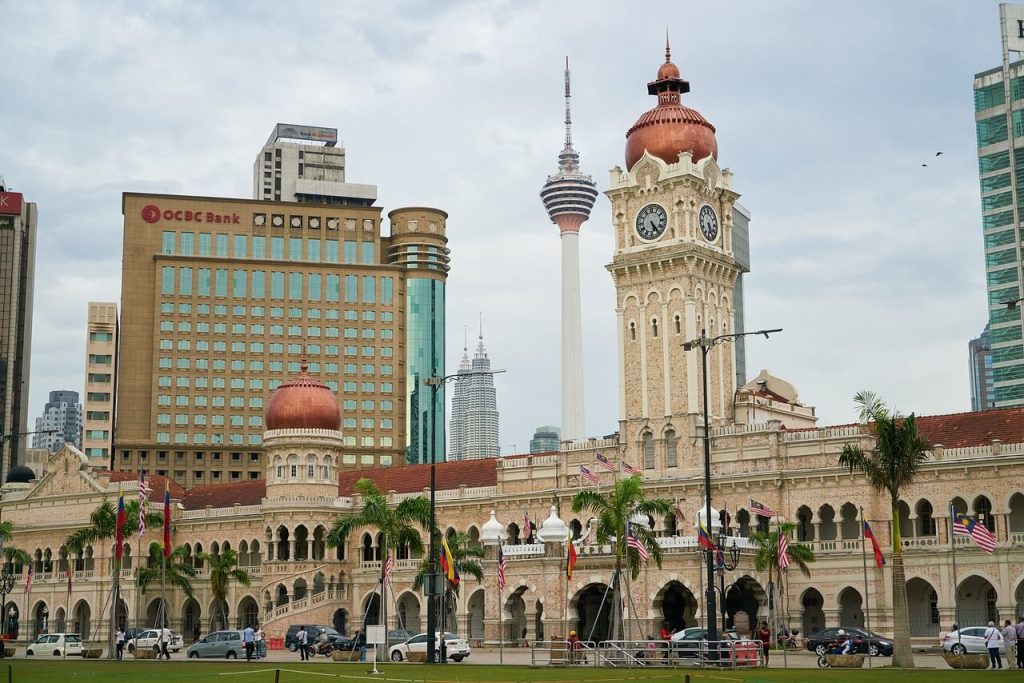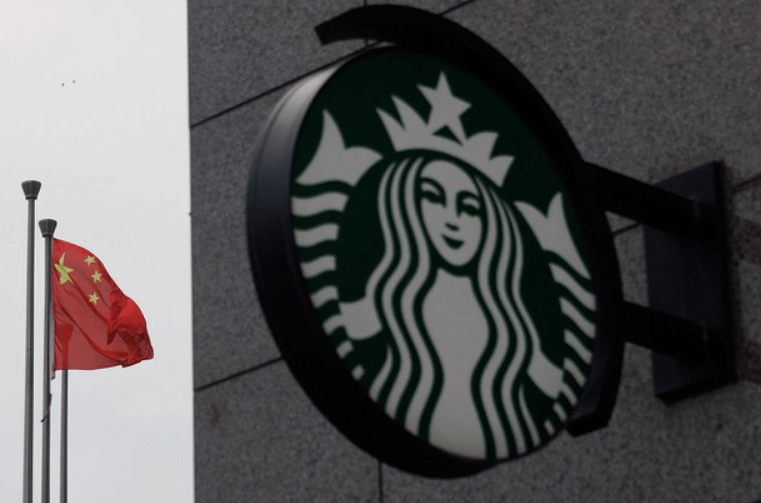No products in the cart.

Local and cultural integration is a powerful strategy for businesses to strengthen their market presence, enhance their reputation, and boost revenue.
By embedding local culture into their operations, businesses can create authentic connections with their target audience, foster customer loyalty, and differentiate themselves in a competitive marketplace.
This approach is particularly effective in regions with rich cultural heritage, such as Malaysia.
JinMatic team would like to explore how three distinct businesses – xam max kitchen, Mangala Estate Boutique Resort, and our own business, JinMatic – can leverage local and cultural integration to improve their reputation and drive revenue.
xam max kitchen: Home Appliances Store
Product Sourcing and Offerings
- Local Products: By sourcing and offering home appliances from local manufacturers, xam max kitchen can appeal to customers who prioritize supporting local businesses. This not only boosts the local economy but also builds a reputation for the store as a community supporter.
- Cultural Relevance: Stocking products that cater to the specific needs and preferences of the Malaysian market. For example, xam max kitchen offers high-suction cooker hoods specifically designed to cater to the unique needs of Asian cooking. Recognizing the intensity and aromatic nature of Asian culinary techniques, these cooker hoods are engineered to effectively handle high levels of smoke, steam, and strong odours that are often produced. By offering high-suction and easy-cleaning cooker hoods like Fujioh, xam max kitchen meets the demands of Asian cooking.
Marketing and Branding
- Local Stories: Highlighting the stories of local suppliers and the cultural significance of products in marketing campaigns can create an emotional connection with customers.
- Language and Communication: Using local languages and culturally relevant messaging in Breville product promotions can resonate more deeply with the target audience.
Mangala Estate Boutique Resort: Boutique Resort in Pahang
Guest Experience and Services
- Urut Melayu: As an award-winning resort in Malaysia, Mangala Estate Boutique Resort offers Urut Melayu, a traditional Malay massage that embodies the essence of relaxation and holistic well-being. Urut Melayu focuses on relaxing both the body and mind by improving blood circulation through long kneading strokes and gentle stretching techniques. Special attention is given to manipulating palm pressure and thumb points to promote health, vitality, and an overall sense of well-being. The experience is enhanced with the resort’s signature warm blended oils, prepared with local herbs and spices, providing an authentic and immersive cultural experience for guests. This service not only highlights traditional Malay healing practices but also reinforces the resort’s commitment to cultural preservation and guest satisfaction.

- Cultural Decor and Architecture: Designing rooms and common areas with elements of local architecture and decor can provide guests with a unique and authentic stay.
Sustainability and Community Involvement
- Local Partnerships: Partnering with local artisans, farmers, and businesses to supply goods and services can support the local economy and promote sustainable tourism.
- Cultural Preservation: Engaging in activities that preserve and promote local culture and traditions can attract culturally conscious travellers and enhance the resort’s reputation.
Marketing and Branding
- Cultural Narratives: Using storytelling to share the history and culture of the area can create a compelling brand narrative that attracts guests seeking authentic experiences.
- Local Festivals and Events: Promoting and participating in local festivals and events can boost the resort’s visibility and reputation within the community.
Entertainment Industry
The entertainment industry, encompassing film, music, television, lottery, theatre, and more, has a unique opportunity to harness local and cultural integration to enhance its reputation and drive revenue.
By celebrating and incorporating local culture into content, production, and marketing strategies, entertainment companies can create more authentic and relatable experiences for audiences.
For example, the leading 4D result platform, 4D Panda, has created a “4D Dictionary” feature. The goal is to allow the users to search the 4-digit number behind each keyword/their dream. Similarly, the 4D betting platform 4D13 created a 4D prediction tool to allow visitors to get their lucky numbers. This approach strengthens connections with local communities and appeals to global audiences seeking diverse and culturally rich entertainment options.
HN Clinic: Aesthetic Clinic
HN Clinic understands the importance of aligning its services with Malaysia’s cultural expectations and beauty standards. The aesthetic clinic offers treatments that cater to a diverse clientele, respecting the unique beauty ideals of different ethnic groups within the country. Whether it’s subtle enhancements or more noticeable changes, the clinic ensures that its offerings are in tune with the cultural sensitivities and preferences of its patients.
Flexi Surface: Rubber Flooring Specialist
Sustainability is an essential consideration in Malaysia, and Flexi Surface has integrated eco-friendly practices into its manufacturing processes. Their rubber flooring, often made from recycled materials, is marketed as a solution that contributes to both local environmental preservation and global sustainability efforts. This commitment resonates with businesses, government bodies, and environmentally conscious consumers, further strengthening the brand’s reputation.
Flexi Surface actively engages with local contractors, architects, and builders to understand project-specific requirements. These partnerships strengthen their reputation within the business ecosystem, fostering a sense of shared growth. By working with Malaysian-based suppliers, the company also supports local industries, enhancing its image as a community-driven enterprise.
JinMatic: SEO Agency
Tailored SEO Strategies
- Local SEO: Developing SEO strategies that focus on local search terms and culturally relevant keywords can help local businesses rank higher in search results, attracting more local customers. For example, instead of focusing only on English keywords like water purifiers, Terence Lim noticed the rising trend of Malay and Chinese keywords. For the 3M SEO campaign, our team focuses on keywords like “penapis air”, “净水器” to cater to the different target audiences.
- Cultural Sensitivity: Understanding and incorporating cultural nuances into SEO content can improve engagement and conversion rates.
Client Relationships
- Local Expertise: Demonstrating expertise in the local market and cultural context can build trust and credibility with clients, positioning JinMatic as the go-to agency for businesses seeking to enhance their local online presence.
- Community Engagement: Participating in local business networks and community events can strengthen relationships with potential clients and partners.
Content and Marketing
- Culturally Relevant Content: Creating content that reflects local culture and interests can improve the effectiveness of digital marketing campaigns.
- Local Case Studies: Showcasing successful projects with local clients can demonstrate the agency’s ability to deliver culturally tailored solutions.
Challenges Businesses May Face in Local and Cultural Integration
While integrating local and cultural elements into business operations can offer significant advantages, it also presents several challenges. These challenges can stem from various factors including cultural sensitivities, logistical issues, and market dynamics.
JinMatic team has analyzed some of the key challenges businesses might face when attempting to leverage local and cultural integration as below.
1. Cultural Sensitivity and Misrepresentation
Understanding Cultural Nuances: Accurately understanding and representing local cultures can be difficult, particularly for businesses that are not deeply familiar with the cultural context. Misrepresentation or superficial treatment of cultural elements can lead to backlash and damage the company’s reputation.
Avoiding Stereotypes: There is a risk of perpetuating stereotypes or cultural clichés, which can offend the local community and diminish the authenticity of the business’s efforts.
2. Logistical and Operational Challenges
Resource Allocation: Integrating local culture often requires additional resources, such as hiring cultural consultants, sourcing local materials, or investing in training programs. This can be costly and time-consuming.
Supply Chain Issues: Sourcing products and services locally can sometimes lead to supply chain disruptions, especially if local providers cannot meet the required standards or volume.
3. Regulatory and Compliance Issues
Local Regulations: Businesses need to navigate local regulations and standards, which can vary significantly from one region to another. Compliance with these regulations can be complex and may require legal expertise.
Intellectual Property: Protecting intellectual property related to cultural elements can be challenging, particularly in regions with different legal frameworks and enforcement practices.
4. Market Acceptance and Adaptation
Consumer Preferences: Local consumers might have strong preferences or loyalties to established local brands, making it difficult for new entrants to gain a foothold.
Balancing Local and Global Appeal: Businesses aiming for a global market might struggle to find the right balance between local cultural integration and maintaining a universal appeal.
5. Communication and Marketing Challenges
Language Barriers: Effective communication in the local language is essential but can be challenging for businesses without linguistic expertise. Miscommunications can lead to misunderstandings or negative perceptions.
Cultural Relevance in Marketing: Creating marketing campaigns that resonate culturally with local audiences requires deep insights and creativity, which can be difficult to achieve without local expertise.
6. Community Engagement and Trust
Building Trust: Establishing trust with local communities takes time and consistent effort. Businesses need to demonstrate genuine commitment to cultural integration, rather than appearing to exploit local culture for commercial gain.
Managing Expectations: Engaging with local communities can raise expectations for ongoing support and involvement. Businesses need to manage these expectations carefully to avoid disappointment and negative reactions.
7. Internal Organizational Challenges
Cultural Competency Training: Ensuring that employees understand and respect local cultures requires comprehensive training programs, which can be resource-intensive.
Resistance to Change: Employees and management might resist changes associated with cultural integration, particularly if it involves altering long-standing practices or adopting new ways of working.
Case Studies of Challenges
- Starbucks in China: Starbucks faced challenges when entering the Chinese market, including cultural differences in coffee consumption habits and strong competition from local tea houses. The company had to adapt its offerings and marketing strategies to fit local tastes.

- Walmart in Germany: Walmart struggled with cultural integration in Germany due to differences in retail practices, labor regulations, and consumer behavior. The company eventually exited the market after failing to adapt to local preferences and practices.
Integrating local and cultural elements into business operations can yield significant benefits but also comes with a range of challenges. Businesses need to approach cultural integration thoughtfully, with a deep understanding of local contexts and a genuine commitment to cultural respect and authenticity. By addressing these challenges proactively and strategically, businesses can enhance their reputation, build stronger relationships with local communities, and ultimately drive revenue growth.
Conclusion
Integrating local culture into business operations, marketing, and customer experiences can significantly enhance a company’s reputation and revenue.
For xam max kitchen, Mangala Estate Boutique Resort, and JinMatic, leveraging cultural elements and local connections not only differentiates them from competitors but also fosters deeper relationships with customers and the community.
This approach can lead to increased customer loyalty, positive word-of-mouth, and ultimately, higher revenue. By valuing and promoting local culture, these businesses can thrive in their respective markets and contribute to the broader cultural and economic landscape.
